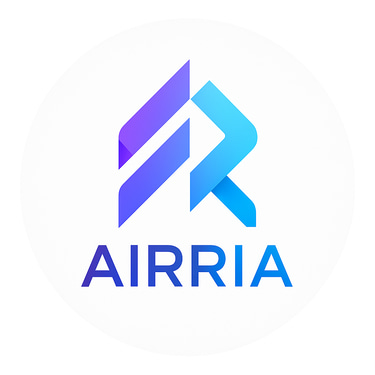Navigating the Quantum Computing Landscape: A Comparative Analysis of Industry Leaders
Explore the diverse approaches and innovations of leading quantum computing companies, including IBM, Google, Microsoft, D-Wave Systems, Rigetti Computing, IonQ, and Quantinuum. This analysis delves into each company's unique strategies, technological advancements, and contributions to the rapidly evolving field of quantum computing. Gain insights into how these industry pioneers are shaping the future of computation and addressing complex challenges across various sectors.
TECHNOLOGY
4/2/20254 min read


Navigating the Quantum Computing Landscape: A Comparative Analysis of Industry Leaders
The quantum computing sector is a vibrant tapestry of innovation, with companies adopting diverse strategies and technologies to harness the power of quantum mechanics. In this exploration, we'll delve into the distinctive approaches of key players in the quantum computing arena, highlighting how each contributes uniquely to this transformative field.
IBM: Pioneering Modular Quantum Systems
Approach: IBM is advancing quantum computing through the development of modular quantum systems. Their roadmap includes the creation of the Kookaburra processor, aiming to integrate multichip processors to achieve scalability.
Key Technologies:
Superconducting Qubits: IBM utilizes superconducting qubits, focusing on enhancing coherence times and reducing error rates.
Quantum System Two: This system is designed to accommodate future processors like Kookaburra, emphasizing modularity for scalability.
Notable Achievements:
IBM Quantum Experience: A cloud-based platform providing public access to quantum processors, fostering widespread research and education.
Distinctive Edge: IBM's commitment to modular architectures positions them to scale quantum systems effectively, addressing challenges related to qubit connectivity and coherence.
Google Quantum AI: Pursuing Quantum Supremacy
Approach: Google focuses on achieving quantum supremacy by demonstrating quantum computers' ability to solve problems beyond classical capabilities.
Key Technologies:
Sycamore Processor: A 54-qubit processor that performed specific computations faster than classical supercomputers.
Quantum Algorithms: Emphasis on developing algorithms that leverage quantum parallelism for complex problem-solving.
Notable Achievements:
Quantum Supremacy Claim: In 2019, Google reported that Sycamore completed a task in 200 seconds that would take classical supercomputers thousands of years.
Distinctive Edge: Google's focus on quantum supremacy showcases the potential of quantum computing to outperform classical systems in specific tasks, driving forward the field's boundaries.
Microsoft Quantum: Innovating with Topological Qubits
Approach: Microsoft is developing a scalable quantum computer using topological qubits, which promise enhanced stability and error resistance.
Key Technologies:
Topological Qubits: These qubits are designed to be more robust against environmental disturbances, facilitating longer coherence times.
Quantum Development Kit (QDK): A suite of tools, including the Q# programming language, for quantum algorithm development.
Notable Achievements:
Azure Quantum Platform: Integrates quantum computing services into Microsoft's cloud ecosystem, providing access to quantum resources alongside classical computing.
Distinctive Edge: Microsoft's pursuit of topological qubits aims to overcome significant challenges in quantum error correction, potentially enabling more reliable quantum computations.
D-Wave Systems: Specializing in Quantum Annealing
Approach: D-Wave focuses on quantum annealing, a method suited for solving optimization problems by finding low-energy states in complex systems.
Key Technologies:
Quantum Annealers: Processors designed specifically for optimization tasks, differing from gate-based quantum computers.
Leap Quantum Cloud Service: Provides real-time access to D-Wave's quantum systems and hybrid solvers.
Notable Achievements:
Advantage System: Features over 5,000 qubits, tailored for complex optimization problems in various industries.
Distinctive Edge: D-Wave's specialization in quantum annealing offers practical solutions for optimization challenges, making quantum computing accessible for specific applications today.
Rigetti Computing: Integrating Quantum with Classical Systems
Approach: Rigetti emphasizes hybrid quantum-classical computing, developing systems that combine quantum processors with classical infrastructure.
Key Technologies:
Superconducting Qubits: Similar to IBM, focusing on scalable architectures.
Quantum Cloud Services: Offers cloud-based access to quantum processors for algorithm development and testing.
Notable Achievements:
Forest SDK: A platform for developing quantum algorithms, facilitating integration with classical computing resources.
Distinctive Edge: Rigetti's hybrid approach leverages the strengths of both quantum and classical computing, aiming to deliver near-term practical applications.
IonQ: Advancing Trapped-Ion Technology
Approach: IonQ utilizes trapped-ion technology, employing individual atomic ions as qubits, known for their stability and long coherence times.
Key Technologies:
Trapped-Ion Qubits: Ions confined and manipulated using electromagnetic fields, offering high fidelity operations.
IonQ Quantum Cloud: Provides access to their quantum systems via cloud platforms.
Notable Achievements:
IonQ Aria: A system with 25 qubits, demonstrating high gate fidelities and coherence times.
Distinctive Edge: IonQ's use of naturally occurring atomic ions as qubits offers advantages in qubit uniformity and operational precision.
Quantinuum: Merging Hardware and Software Expertise
Approach: Formed from the merger of Honeywell Quantum Solutions and Cambridge Quantum Computing, Quantinuum integrates hardware development with quantum software and applications.
Key Technologies:
Trapped-Ion Processors: Focus on high-fidelity qubit operations.
Middleware and Software Solutions: Develops platforms for quantum chemistry, machine learning, and encryption applications.
Notable Achievements:
H-Series Quantum Computers: Support all-to-all qubit connectivity, enhancing entanglement capabilities.
Distinctive Edge: Quantinuum's holistic approach combines robust hardware with versatile software solutions, aiming to accelerate the development of practical quantum applications.
Amazon Braket: Democratizing Quantum Access
Approach: Amazon Web Services (AWS) offers Amazon Braket, a platform providing access to various quantum computing resources from multiple providers.
Key Technologies:
Cloud Integration: Seamlessly integrates quantum computing resources into AWS's cloud ecosystem.
Hybrid Algorithms: Supports development of algorithms that combine quantum and classical processing.
Notable Achievements:
Ocelot Quantum Chip: A research prototype aimed at addressing error correction challenges in quantum computing.
Distinctive Edge: Amazon's platform-agnostic approach democratizes access to quantum computing, enabling users to experiment with different technologies and find optimal solutions for their needs.
Conclusion
The quantum computing landscape is characterized by a diversity of approaches, each with its unique strengths and challenges. From IBM's modular systems and Google's pursuit of quantum supremacy to D-Wave's specialization in quantum annealing and IonQ's trapped-ion technology, these companies are collectively advancing the frontier of computing. As the field progresses, understanding these distinctions becomes crucial for stakeholders aiming to navigate and leverage the evolving quantum ecosystem.
References available upon request. For further insights, explore our previous discussions on Quantum Algorithms and AI-Enhanced Computing.

Explore
Join us on our journey to monetize content.
© 2025. All rights reserved.
